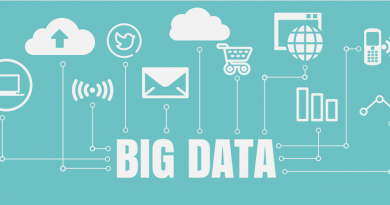Some Misconceptions Related To Big Data
There are many people who are unaware of what exactly Hadoop is. It is a framework used in a distributed computing environment to process large data sets. This software is based on the Java programming framework and is available freely. The Apache Software Foundation has sponsored this software as part of the Apache project. The basic aim of Hadoop is to run applications on many systems and allow fast data transfer rates among nodes in order to provide uninterrupted system usage even when a node fails to operate. It is mostly used in the distributed file system as there are innumerable nodes that have a chance of becoming inoperative at sometime or the other. Let us now know how Hadoop can affect Big Data.
It is necessary to understand that the Big Data market can burdened because of Hadoop. There are many reports that suggest the Big Data will hit the $13 billion market by 2017. The data processing engine of Hadoop is at the core of Big Data so it can get a lot of money from Hadoop related products and services. Big Data is known to create over three exabytes of data everyday which comes to a total of 1,200 exabytes in a single year. As far as its expansion is concerned, it is one such data processing engine that has topped the data sets generated by Google, eBay or even Amazon. The basic building blocks of business analytics namely, data aggregation, data exhaust and metadata are the principles that Big Data thrives on and so gains so much advantage from it. There are many misconceptions that surround Big Data and we present some of those myths here.
1. Big Data is Only About Massive Data Volume
 Big Data is based on three elements namely, volume, variety and velocity. Even though volume is an important factor, it is the least important among the others. Many times, the different kinds of data and file types need to be managed and analyzed using relational databases. It becomes tedious to use these traditional databases for managing data such as sound, movie files, images, documents, geo-location data, web logs or text strings. This is where Big Data comes into picture. The velocity factor is also important as it can help in knowing the intensity at which the data is changing and the manner in which to create its real value.
Big Data is based on three elements namely, volume, variety and velocity. Even though volume is an important factor, it is the least important among the others. Many times, the different kinds of data and file types need to be managed and analyzed using relational databases. It becomes tedious to use these traditional databases for managing data such as sound, movie files, images, documents, geo-location data, web logs or text strings. This is where Big Data comes into picture. The velocity factor is also important as it can help in knowing the intensity at which the data is changing and the manner in which to create its real value.
2. Big Data Means Unstructured Data
 Big Data can have different data belonging to different data types and storing this variant data in the same structure is not possible. This is why Big Data uses the unstructured schema or rather multi-structured data that would allow storing not only text strings but also all kinds of documents, audio data, video data, metadata, webpages, email messages, social media feed, form data and various other forms of data.
Big Data can have different data belonging to different data types and storing this variant data in the same structure is not possible. This is why Big Data uses the unstructured schema or rather multi-structured data that would allow storing not only text strings but also all kinds of documents, audio data, video data, metadata, webpages, email messages, social media feed, form data and various other forms of data.
3. Big Data Means Hadoop
Hadoop is derived from Google and is used by yahoo and many others. The complex structure of Big Data and the varied data it gets needs one sure-shot solution. This is achieved by the three classes of technologies that help in storing as well as managing Big Data. Apart from that, there are two more classes namely, NoSQL and Massively Parallel Processing (MPP) data stores.
4. Big Data is for Social Media Feeds and Sentiment Analysis
Big Data makes it easy to analyze web traffic, IT system logs, customer sentiment created in great volumes every day. It is known to give services to big web-based companies like Google, Yahoo, Facebook etc. The ever-increasing computer power, Hadoop software as well as modern data has made it possible for Big Data to analyze such digital issues effectively.
5. NoSQL means No SQL
 This is just a myth but actually NOSQL means Not Only SQL. It signifies that Big Data not only offers the basic types of methods and query techniques that SQL provides but also includes key value stores, document-oriented databases, graph databases, big table structures and caching data stores. This is why, it is essential to choose the right NoSQL technology for your business model and data type.
This is just a myth but actually NOSQL means Not Only SQL. It signifies that Big Data not only offers the basic types of methods and query techniques that SQL provides but also includes key value stores, document-oriented databases, graph databases, big table structures and caching data stores. This is why, it is essential to choose the right NoSQL technology for your business model and data type.
It is necessary that you don’t neglect the needs of your company and make sure that you do proper data analysis by following a suitable business intelligence program.
Nikhil Agrawal is a Web Consultant and Entrepreneur with substantial experience in building online businesses and developing web applications. He also specializes in Consulting and Strategies for concept, development, web infrastructure, cloud computing, VPS technologies, and online marketing/promotion.



